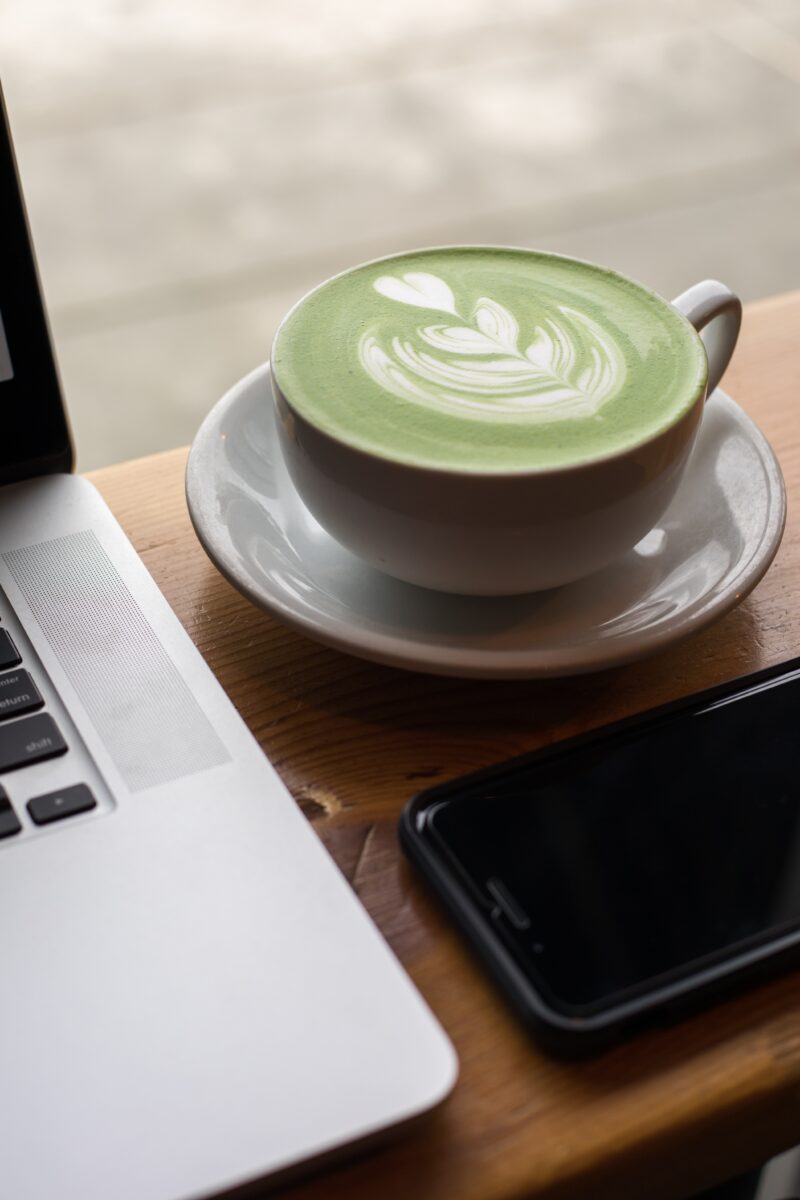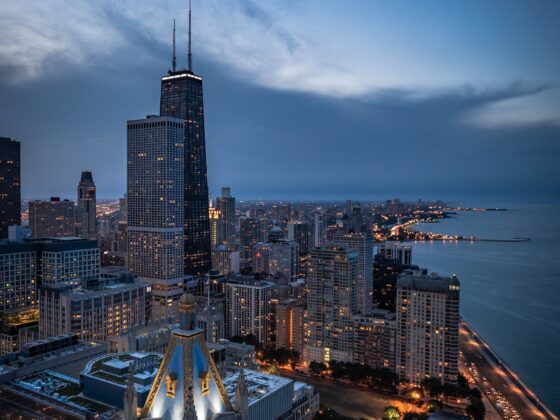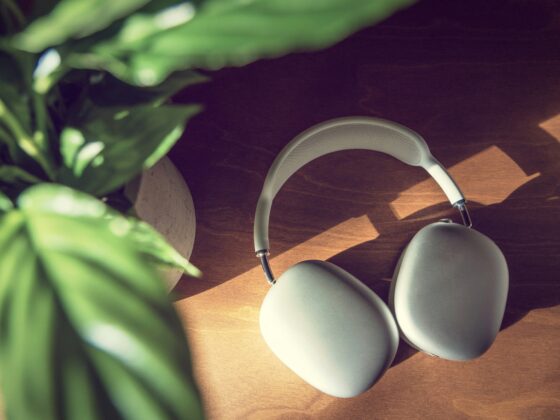Move over coffee, there’s a new contender for the morning ritual: matcha. With its vibrant green color and earthy flavor, matcha is quickly gaining popularity as a healthier alternative to coffee. But is it really the new go-to beverage?
In recent years, matcha has taken the health and wellness world by storm. Packed with antioxidants, this powdered green tea is known for its ability to boost metabolism, enhance focus, and provide a calm yet alert state of mind.
But what sets matcha apart from coffee? Unlike coffee, matcha avoids the jittery highs and crashes by offering a slow release of caffeine, thanks to its rich amino acid content, particularly L-theanine. This amino acid promotes a state of relaxation and focus, making matcha the perfect choice for those seeking energy without the jitters.
But does matcha truly have what it takes to replace coffee? While matcha does offer a unique set of benefits, it ultimately comes down to personal preference. Whether you’re a die-hard coffee lover or looking to explore new avenues for your morning routine, matcha is definitely worth a try. So grab your matcha whisk and get ready to brew up a battle between two beloved beverages.
Brewing the Battle: Is Matcha the New Coffee?
Move over coffee, there’s a new contender for the morning ritual: matcha. With its vibrant green color and earthy flavor, matcha is quickly gaining popularity as a healthier alternative to coffee. But is it really the new go-to beverage?
What is matcha and how is it different from coffee?
Matcha is a finely ground powdered green tea that originated in Japan. Unlike regular green tea, where the leaves are steeped and discarded, matcha is made by grinding the entire tea leaf into a fine powder. This means that when you consume matcha, you are ingesting the whole leaf and all its nutrients.
Coffee, on the other hand, is made from roasted coffee beans. It is a rich, bold beverage that has been a staple in many people’s lives for centuries. The main difference between matcha and coffee lies in their preparation and the way they affect the body.
Health benefits of matcha compared to coffee
In recent years, matcha has taken the health and wellness world by storm. Packed with antioxidants, this powdered green tea is known for its ability to boost metabolism, enhance focus, and provide a calm yet alert state of mind.
Thanks to its high antioxidant content, matcha offers a range of health benefits. It is rich in catechins, a type of antioxidant that helps fight free radicals and reduce inflammation in the body. Matcha is also believed to boost the immune system, support heart health, and promote healthy skin.
Coffee, on the other hand, also has its own set of health benefits. It is known to improve mental alertness, increase physical performance, and even reduce the risk of certain diseases such as Parkinson’s and Alzheimer’s. However, excessive consumption of coffee can lead to negative effects such as increased anxiety, disrupted sleep patterns, and digestive issues.
The caffeine content in matcha and coffee
One of the main reasons people turn to coffee in the morning is for its caffeine content. Caffeine is a natural stimulant that helps increase alertness and reduce fatigue. However, the caffeine content in matcha and coffee differs.
While coffee typically contains more caffeine than matcha, the effects of caffeine in matcha are different. Matcha contains a unique amino acid called L-theanine, which promotes a state of relaxation and focus. This amino acid works in synergy with caffeine to provide a calm yet alert state of mind. It helps avoid the jittery highs and crashes often associated with coffee consumption.
Taste and flavor profiles of matcha and coffee
The taste and flavor profiles of matcha and coffee are distinct and appeal to different palates. Matcha has a unique grassy and slightly bitter flavor that is often described as umami. It has a smooth and creamy texture, especially when prepared traditionally with a bamboo whisk.
Coffee, on the other hand, has a bold and robust flavor that can vary depending on the roast and the brewing method. It can be acidic, bitter, or even fruity, depending on the beans and the brewing technique used.
The choice between matcha and coffee ultimately comes down to personal preference. Some people prefer the earthy and soothing taste of matcha, while others crave the bold and energizing flavor of coffee. It’s all a matter of individual taste and the experience one seeks from their morning beverage.
Matcha and coffee brewing methods
The brewing methods for matcha and coffee also differ significantly. Matcha is traditionally prepared using a bamboo whisk and a bowl. The powder is sifted into the bowl, hot water is added, and the mixture is whisked vigorously until frothy.
Coffee, on the other hand, can be brewed using various methods such as pour-over, French press, or espresso machine. Each brewing method brings out different flavors and characteristics in the coffee beans, allowing for a unique coffee experience.
Matcha and coffee recipes and variations
Both matcha and coffee offer a wide range of recipes and variations that cater to different taste preferences. Matcha can be used in traditional Japanese tea ceremonies, as well as in modern recipes such as matcha lattes, smoothies, and desserts. It can even be used as a flavoring agent in savory dishes.
Coffee, on the other hand, can be enjoyed in various forms such as black coffee, espresso, cappuccino, or latte. It can be flavored with syrups, spices, or even mixed with milk alternatives to create unique and indulgent beverages.
The rise of matcha in the coffee industry
In recent years, matcha has made its way into the coffee industry, with many coffee shops and cafes offering matcha as an alternative to coffee. Matcha lattes and matcha-infused pastries have become increasingly popular, catering to those seeking a healthier and more mindful beverage option.
The rise of matcha in the coffee industry can be attributed to the growing interest in health and wellness, as well as the desire for unique and Instagram-worthy drinks. Matcha provides a visually appealing and flavorful alternative to coffee, making it a popular choice among millennials and health-conscious individuals.
Factors to consider when choosing between matcha and coffee
When choosing between matcha and coffee, there are a few factors to consider. Firstly, caffeine sensitivity plays a role in deciding which beverage is suitable for an individual. Matcha’s slow release of caffeine may be preferable for those who are sensitive to the jitters caused by coffee.
Secondly, taste preference and the desired flavor profile should be taken into account. Matcha offers a unique and earthy flavor, while coffee provides a bold and robust taste. Experimenting with different brewing methods and recipes can help determine which flavor profile is more appealing.
Lastly, the desired health benefits should be considered. Matcha is known for its high antioxidant content and the calming effects of L-theanine, while coffee is associated with increased alertness and physical performance.
Conclusion: The verdict on matcha versus coffee
In the battle between matcha and coffee, there is no clear winner. Both beverages offer unique flavors, health benefits, and brewing methods. Whether you’re a die-hard coffee lover or looking to explore new avenues for your morning routine, matcha is definitely worth a try.
Personally, I love matcha and coffee. When I have a lot do in a day, either one will satisfy my caffeine requirement. However, I have noticed that when I use matcha, I don’t get the post caffeine crash that I get with coffee.
Matcha’s vibrant green color, earthy taste, and numerous health benefits make it a compelling alternative to coffee. Its slow release of caffeine, thanks to the presence of L-theanine, provides a calm and focused state of mind without the jitters often associated with coffee consumption.
However, coffee still holds its place as a beloved and widely consumed beverage. Its bold flavor, energizing effects, and versatility in brewing methods make it a staple in many people’s lives.
Ultimately, the choice between matcha and coffee comes down to personal preference and the desired experience. Whether you’re sipping a smooth and creamy matcha latte or enjoying a robust cup of coffee, both beverages have their own unique appeal. So, grab your matcha whisk or coffee grinder and embrace the brewing battle between two beloved beverages. Cheers to your morning ritual!












